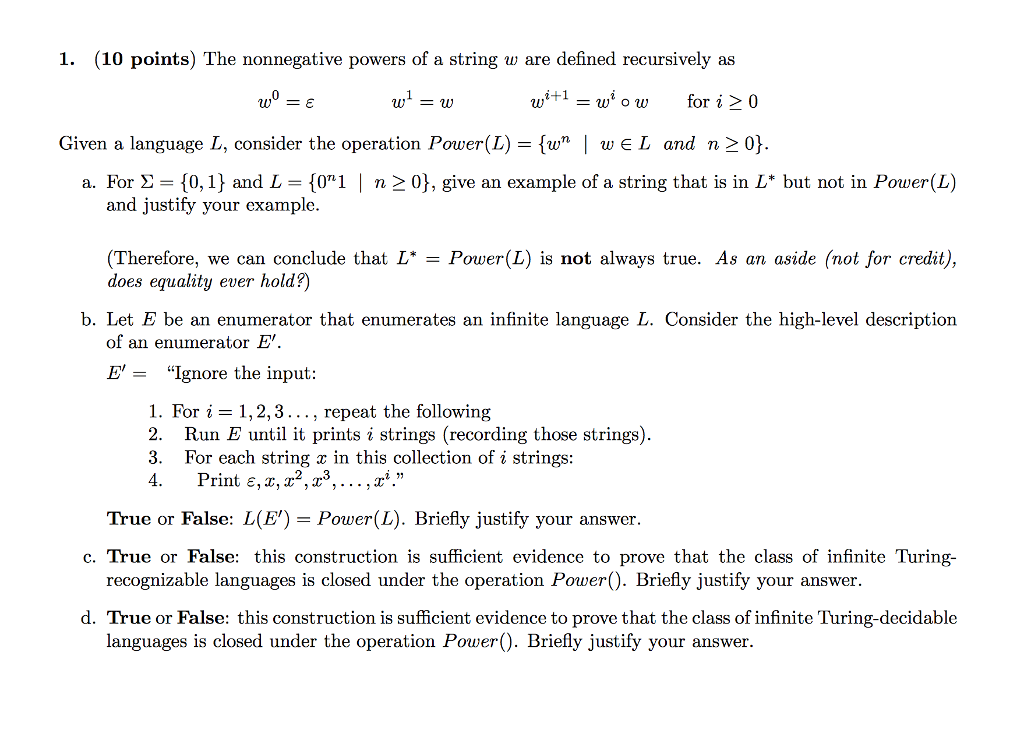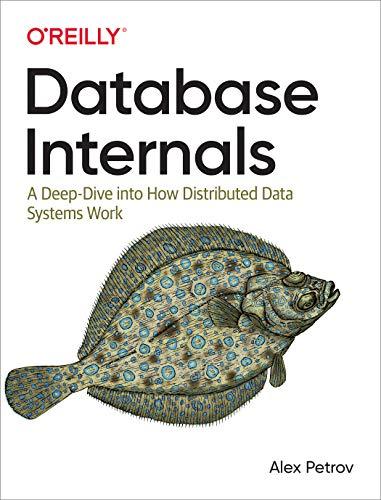Answered step by step
Verified Expert Solution
Question
1 Approved Answer
1. (10 points) The nonnegative powers of a string w are defined recursively as w0 = ? w1 = w wi+1 = wi ? w
1. (10 points) The nonnegative powers of a string w are defined recursively as w0 = ? w1 = w wi+1 = wi ? w for i ? 0
Given a language L, consider the operation P ower(L) = {wn | w ? L and n ? 0}.

Step by Step Solution
There are 3 Steps involved in it
Step: 1

Get Instant Access to Expert-Tailored Solutions
See step-by-step solutions with expert insights and AI powered tools for academic success
Step: 2

Step: 3

Ace Your Homework with AI
Get the answers you need in no time with our AI-driven, step-by-step assistance
Get Started


